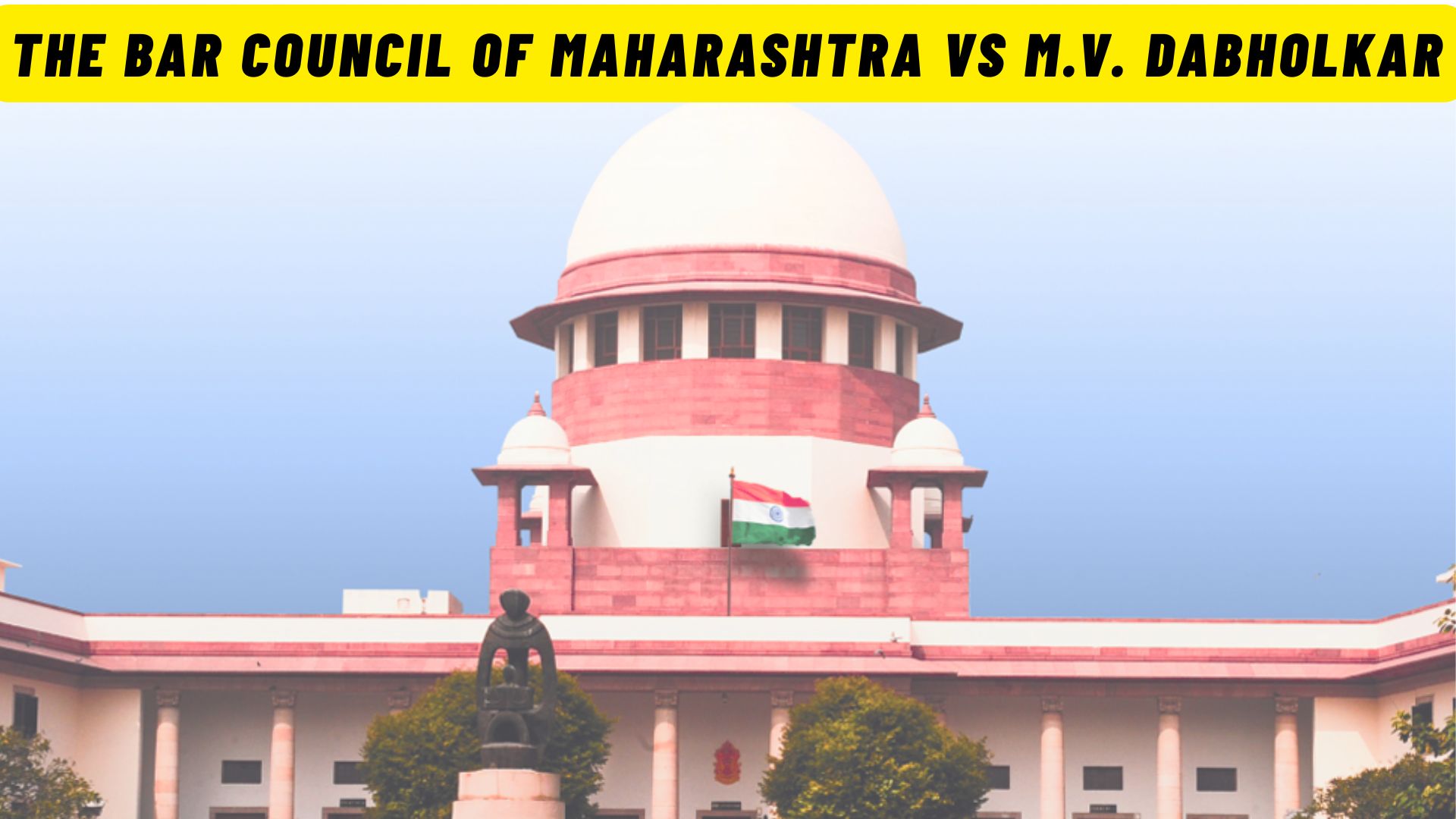
Case Summary - The Bar Council of Maharashtra Vs M.V. Dabholkar and Others (1975)
(1975) 10 SC CK 0005
In The Supreme Court of India
Case No: Civil Appeal Nos. 1461 to 1468 of 1974
The Bar Council of Maharashtra (Appellant)
Vs
M.V. Dabholkar and Others (Respondent)
Date of Decision: 03-10-1975
Bench: Full Bench
Hon'ble Judges: V. R. Krishna Iyer, J; S. Murtaza Fazal Ali, J; R. S. Sarkaria, J; A. C. Gupta, J
Final Decision: Disposed Of
[Judgment Source]
https://www.courtkutchehry.com/Judgement/Search/AdvancedV2?docid=279749
All Citations
AIR 1976 SC 242; (1976) 2 SCC 291; (1976) 2 SCR 48
Facts of the Case
Several advocates practicing in Bombay criminal courts were accused of soliciting clients at the court entrance, snatching briefs, undercutting fees, and engaging in physical altercations to secure work. The State Disciplinary Committee found them guilty and suspended them for three years. On appeal, the Bar Council of India’s Disciplinary Committee acquitted them, holding that such acts did not amount to professional misconduct. The Bar Council of Maharashtra challenged this view before the Supreme Court.
Law Points Raised
1. Whether solicitation of clients by advocates constitutes professional misconduct.
2. Whether procedural lapses in disciplinary proceedings can vitiate the decision.
3. Scope of 'reason to believe' under Section 35(1) of the Advocates Act.
4. Standards of professional ethics and their enforcement under the Advocates Act.
Acts / Provisions / Articles Referred
• Bar Council of India Rules, 1975 — Rule 36
• Advocates Act, 1961 — Sections 35, 35(1), 35(3), 37(2), 38, 49(c)
• Indian Bar Councils Act, 1926 — Section 10
Judgements Referred
Referenced earlier Supreme Court rulings on professional misconduct and Bar Council powers.
Obiter Dicta
The Court lamented the declining ethical standards in the legal profession, warning that conduct like solicitation and brief-snatching erodes public confidence. It also criticized procedural inefficiencies and lack of fairness in disciplinary proceedings, stressing adherence to natural justice.
Ratio Decidendi
Active solicitation of clients through improper means constitutes gross professional misconduct under the Advocates Act. Bar Councils must maintain high ethical standards, and disciplinary proceedings must ensure procedural fairness.
Final Ruling
The Supreme Court recognized such solicitation as misconduct and emphasized the duty of disciplinary bodies to protect professional integrity. However, the final decision addressed individual cases based on evidence and procedural fairness.
Summary
This case reaffirmed the nobility of the legal profession and the duty of advocates to uphold its dignity. It condemned unethical solicitation of clients and clarified that such conduct amounts to professional misconduct. The Court also urged strict adherence to fair procedures in disciplinary proceedings.
[Judgment Source]
https://www.courtkutchehry.com/Judgement/Search/AdvancedV2?docid=279749